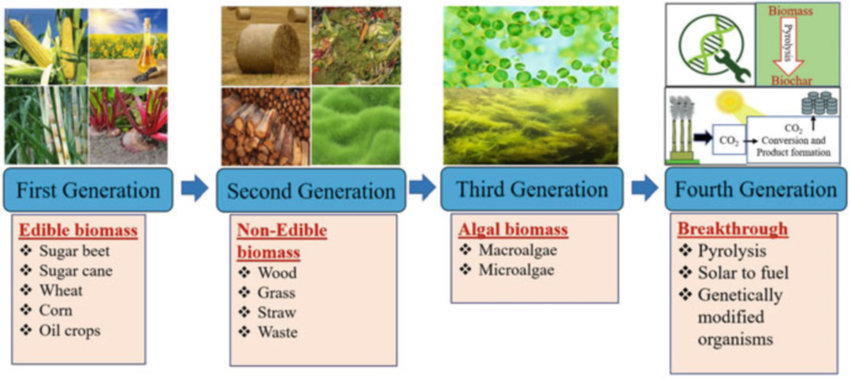Indian Economy
Export of Biofuels from SEZs and EOU
- 28 Mar 2023
- 4 min read
For Prelims: Special Economic Zones, Ethanol, Pradhan Mantri JI-VAN Yojana 2019, GOBAR (Galvanizing Organic Bio-Agro Resources) DHAN Scheme 2018, National Policy on Biofuels 2018
For Mains: Significance of Biofuels, Challenges Related to Biofuels.
Why in News?
The Indian government stated that the export of biofuels from special economic zones (SEZs) and export oriented units (EOUs) will be permitted without any restrictions, if the biofuel is produced by using imported feed stock.
- In 2018, the Indian government had imposed restrictions on the export of biofuels soon after imposing similar conditions on its imports.
What are Biofuels?
- About:
- Any hydrocarbon fuel that is produced from an organic matter (living or once living material) in a short period of time is considered a biofuel.
- Biofuels may be solid, liquid or gaseous in nature.
- Solid: Wood, dried plant material, and manure
- Liquid: Bioethanol and Biodiesel
- Gaseous: Biogas
- Categories of Biofuels:
- First Generation Biofuels:
- These are made from food sources such as sugar, starch, vegetable oil, or animal fats using conventional technology.
- Examples include Bioalcohols, Vegetable oil, Bioethers, Biogas.
- Second Generation Biofuels:
- These are produced from non-food crops or portions of food crops that are not edible and considered as wastes, e.g., stems, husks, wood chips, and fruit skins and peeling.
- Examples include cellulose ethanol, biodiesel.
- Third Generation Biofuels:
- These are produced from micro-organisms like algae.
- Example- Butanol
- Fourth Generation Biofuels:
- Fourth-generation biofuels are advanced biofuels that are produced using genetically modified (GM) algae biomass, and advanced conversion technologies (use of pyrolysis, gasification etc).
- First Generation Biofuels:
- Significance:
- Energy Security: Biofuels can reduce dependence on fossil fuels, which are often imported from other countries.
- By producing biofuels locally, countries can increase their energy security and reduce their vulnerability to supply disruptions.
- Environmental Benefits: Biofuels are considered to be more environmentally friendly than fossil fuels because they produce fewer greenhouse gas emissions when burned.
- Also, the production of biofuels can contribute to reducing waste and pollution.
- Agricultural Development: Biofuel production requires a significant amount of feedstock, which can provide a new source of income for farmers.
- This can also help to promote rural development and increase agricultural productivity.
- Energy Security: Biofuels can reduce dependence on fossil fuels, which are often imported from other countries.
- Challenges:
- Efficiency: Fossil Fuels produce more energy than some of the biofuels. E.g., 1 gallon of ethanol produces less energy as compared to 1 gallon of gasoline (a fossil fuel).
- Food Shortages: There is concern that using valuable cropland to grow fuel crops could have an impact on the cost of food and could possibly lead to food shortages.
- Water Use: Massive quantities of water are required for proper irrigation of biofuel crops as well as to manufacture the fuel, which could strain local and regional water resources.
What are the Recent Initiatives Regarding Biofuels?
- Pradhan Mantri JI-VAN Yojana, 2019
- GOBAR (Galvanizing Organic Bio-Agro Resources) DHAN scheme, 2018
- National Policy on Biofuels, 2018
UPSC, Civil Services Examination Previous Year’s Question (PYQs)
Prelims
Q. According to India’s National Policy on Biofuels, which of the following can be used as raw materials for the production of biofuels? (2020)
- Cassava
- Damaged wheat grains
- Groundnut seeds
- Horse gram
- Rotten potatoes
- Sugar beet
Select the correct answer using the code given below:
(a) 1, 2, 5 and 6 only
(b) 1, 3, 4 and 6 only
(c) 2, 3, 4 and 5 only
(d) 1, 2, 3, 4, 5 and 6
Ans: (a)





